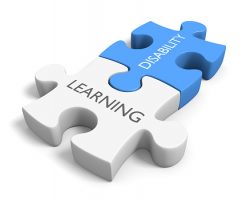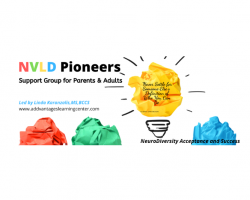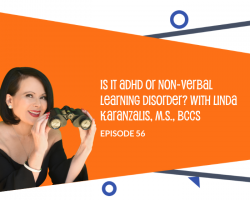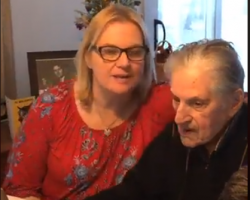ADHD vs NVLD or Non-Verbal Learning Disorder

What is NVLD (Non-VerbaI Learning Disorder) and how does it compare to an ADHD diagnosis? I didn ’t know I had ADHD until I taught my first special education class, more than 20 years ago. Not much was known about the condition back then, but thanks to the mother of one of my students, who was a college professor, I learned about it. I finally had an answer to my questions.
As time went by, I realized that not all of my struggles were caused by ADHD. Why was I so naïve, gullible,
and awkward, bumping into things and people? Why couldn’t I read maps or get jokes? Why did I have trouble riding a bike, unlocking doors, and walking in a straight line?
Most troubling of all, why wasn’t I able to understand the meaning behind other people’s words? People
became annoyed with me as I asked the same questions over and over, in different ways, attempting to decipher what they meant.
It baffled me. I knew I was smart, I graduated with honors, and I was well-spoken and well versed in many things. Finally, in my late 30s, my struggles were explained. I was diagnosed with NVLD (non-verbal learning disorder), a brain-based condition characterized by difficulty recognizing and processing verbal cues, poor visual, spatial, and organizational skills, and poor motor performance.
Confusion Between ADHD and NVLD
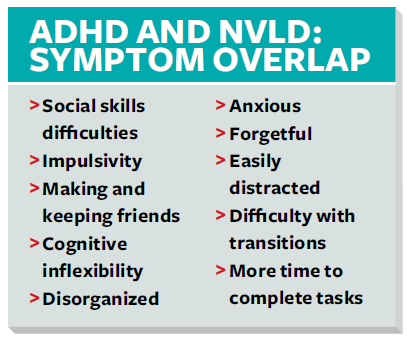 Why did it take so long to get diagnosed? ADHD and NVLD are both brain-based conditions, but each has
Why did it take so long to get diagnosed? ADHD and NVLD are both brain-based conditions, but each has
different causes. What makes it hard to distinguish between them is their overlapping symptoms. ADHD is recognized in the Statistical Manual of Mental Disorders (DSM); NVLD is not.
In addition, NVLD doesn’t present the same symptoms from one child to the next, and its symptoms may change across the lifespan. NVLD is often mistaken for ADHD, and, as a result, is misunderstood and under-diagnosed. Adding to the confusion is the name “non-verbal learning disorder,” which suggests that those with NVLD do not speak. Ninety-three percent of communication is non-verbal—body language, facial expressions, tone of voice. Those with NVLD have trouble interpreting this non-verbal language, relying exclusively on the seven percent of communication that is verbal to understand what others are saying.
What Is NVLD (Non-Verbal Learning Disorder) ?
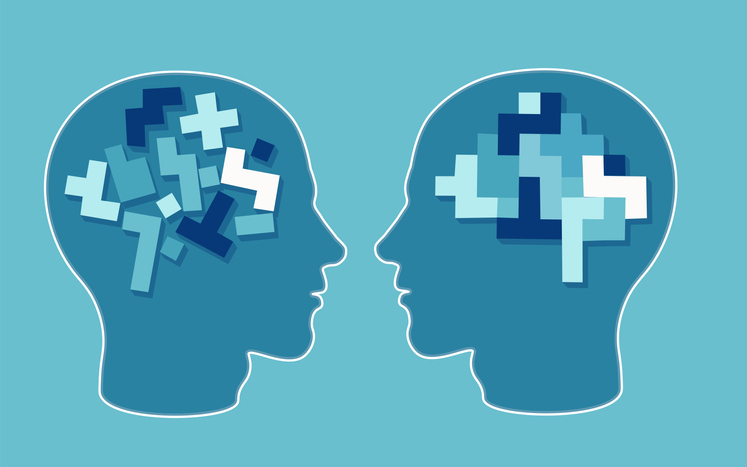 Children and adults with NVLD are typically affected in all or some of the following areas: motor skills (coordination), visual-spatial (discrimination of differences of objects, visualization of images, determining one’s location of body in space), academics (particularly math), social-emotional learning (reading facial expressions, body language, literal interpretation of language), and executive functions (processing skills).
Children and adults with NVLD are typically affected in all or some of the following areas: motor skills (coordination), visual-spatial (discrimination of differences of objects, visualization of images, determining one’s location of body in space), academics (particularly math), social-emotional learning (reading facial expressions, body language, literal interpretation of language), and executive functions (processing skills).
Individuals with NVLD rely heavily on verbal expression when communicating with others, often talking excessively to confirm what the other person means. One of the telltale signs of NVLD is saying, “That’s not what you said.” A child or adult with NVLD will hold you to every word you say. You may even feel that you’re being interrogated, so choose your words wisely. Those with NVLD argue with others a lot, insisting that what is expected of them is not what they were told.
NVLD and anxiety go hand in hand, because of the inability to understand and connect with parents, teachers, peers, and acquaintances. In fact, the symptom that is common among students I have worked with is a high level of anxiety. Many students become school-phobic, and adults with NVLD have trouble communicating with coworkers and the boss.
Unable to understand the agenda of others, those with NVLD are often vulnerable, gullible, and easily led as children and adults. As a young adult, before I knew I had NVLD, I thought a person selling me his car wanted to be my friend. My dad told me otherwise. Mistaking NVLD for ADHD If a clinician mistakes NVLD for ADHD, the patient is placed on ADHD medication, which does nothing for NVLD symptoms. Putting someone through the trials of medication, and enduring side effects, is unnecessary and may lead to other complications. Getting the right diagnosis and receiving early intervention to support your child is
imperative.
The NVLD Project, a non-profit organization, is working hard to do that. They recognize the need for multiple perspectives to determine an accurate definition of the disorder. They are currently funding scientific research to support the preparation of a proposal to include NVLD in the DSM.
If you suspect that you or your child has NVLD, consult a neuropsychologist who is familiar with NVLD, ADHD, spectrum disorders (there is overlap with high functioning autism), and learning disabilities. An evaluation should include a patient’s speech and language development, verbal IQ, performance IQ, visual spatial skills, and motor development. A patient’s score on any one of these individual tests doesn’t matter much by itself. The specialist will be looking to see whether the patient’s overall strengths and weaknesses match the most common patterns seen in patients with NVLD. Many of my students were misdiagnosed with oppositional defiant disorder when they didn’t understand social interactions.
What Can You Do to Help Yourself or Your Child?
 There is no standard treatment approach for NVLD, since so little is known about the condition. As with ADHD, education about NVLD is key for all who work with your child. Physical and occupational therapy, social skills (reading body language, learning social protocols), and executive function skills training (to develop deficient processing skills) are all important to help children manage NVLD symptoms.
There is no standard treatment approach for NVLD, since so little is known about the condition. As with ADHD, education about NVLD is key for all who work with your child. Physical and occupational therapy, social skills (reading body language, learning social protocols), and executive function skills training (to develop deficient processing skills) are all important to help children manage NVLD symptoms.
Parents need support to identify and understand their child’s behaviors. Talk therapy has its place in a treatment regimen, but it doesn’t teach parents, children, or adults the skills to manage moment-to moment situations at home, school, or work.
Behavioral parent training (BPT) gives parents the tools to better meet their child’s daily needs. Dialectical
behavioral therapy (DBT) can be effective for some individuals. Adults with NVLD and ADHD need help as well. Adults who have been diagnosed with both conditions usually have years of struggles. Many marriages suffer. Spouses feel the stress of trying to pick up all the loose ends and provide daily support. When Charlotte, one of my clients, was diagnosed, her husband realized she wasn’t being difficult, or forgetting things on purpose, or being lazy. Her behaviors weren’t due to a character flaw, attitude, or a personality problem.
Once they both knew it was a neurological disorder, they were able to put her behaviors in perspective, and their relationship improved dramatically.
 Linda Karanzalis, MS
Linda Karanzalis, MS
Linda Karanzalis, MS, is a former special education classroom teacher with over 25 years of experience in the areas of learning disabilities, ADHD, social-emotional learning, social skills training, and behavior management
Originally Published in ADDitudes magazine Winter Edition 2019



